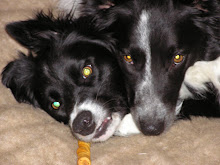The instructor for my The Art of Reading DVD course recommended these books, and I could just kiss him for it! I am going to love this series!! I'm thrilled to have Volumes 1 and 3 here at home and I enjoyed this volume so much that I've already preordered Volume 4 which will be released in October. I added about a million books to my Wishlist, including books by every author included in this volume and some other authors/books they talked about.
I really liked how the authors' personalities seemed to come through. The interviewers asked questions far more insightful than the usual fare, and the answers were quite enlightening. Some were very serious, some were funny, some were deeply contemplative, pompous or frivolous. A few were so over my head that I wasn't sure what on earth they were talking about. There was a little bit of everything and I was enthralled with every interview, even the authors I had never heard of.
What surprised me most was how much I enjoyed the Harold Bloom interview. I expected his to be one of the ones I could barely follow, but that wasn't that case at all. He was opinionated, of course, but seemed like he was fun to talk to. Despite the fact that he can be an arrogant bore in his own writings, he is my secret hero even though I don't always agree with (or even understand!) what he says or how he says it. But his interview was a great read and made me envious of all he has read and had the opportunity to ponder at length.
I highly, highly recommend these books to any reader who wants a chance to take more from their reading than just great entertainment. The authors included in The Paris Review Interviews, Vol. II
Graham Greene
James Thurber
William Faulkner
Robert Lowell
Isaac Bashevis Singer
Eudora Welty
John Gardner
Gabriel Garcia Marquez
Philip Larkin
James Baldwin
William Gaddis
Harold Bloom
Toni Morrison
Alice Munro
Peter Cary
Stephen King
You think this list is great? Wait until you see some of the others!!









